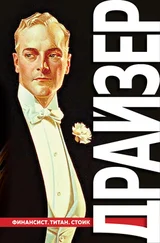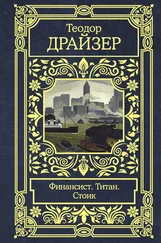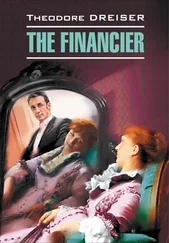“Yes,” said Mr. Dalrymple, scratching his gray head reflectively. “Yes, that's the same soap. I'll take it. Where did you get it, Frank?”
“At Bixom's auction up here,” he replied, frankly and blandly.
Mr. Dalrymple had the drayman bring in the soap; and after some formality made out his note at thirty days [18] note at thirty days – вексель сроком на 30 дней
and gave it to him.
Frank thanked him and pocketed the note. He decided to go back to his father's bank and discount it, as he had seen others doing, thereby paying his father back and getting his own profit in ready money.
He hurried back, whistling; and his father glanced up smiling when he came in.
“Here's a note at thirty days,” he said, producing the paper Dalrymple had given him. “Do you want to discount that for me? You can take your thirty-two out of that.”
His father examined it closely. “Sixty-two dollars!” he observed. “Mr. Dalrymple! That's good paper! Yes, I can. It will cost you ten per cent,” he added, jestingly. “Why don't you just hold it, though? I'll let you have the thirty-two dollars until the end of the month.”
“Oh, no,” said his son, “you discount it and take your money. I may want mine.”
His father smiled at his business-like air. “All right,” he said. “I'll fix it tomorrow. Tell me just how you did this.” And his son told him.
At seven o'clock that evening Frank's mother heard about it, and later Uncle Seneca.
“What'd I tell you, Cowperwood?” he asked. “He has stuff in him, that youngster. Look out for him.”
Mrs. Cowperwood looked at her boy curiously at dinner. Was this the son she had nursed at her bosom not so very long before? Surely he was developing rapidly.
“Well, Frank, I hope you can do that often,” she said.
“I hope so, too, ma,” was his reply.
Auction sales were not every day, however, and his home grocer was open to the transactions not every time, but from the very first young Cowperwood knew how to make money.
He took subscriptions for a boys' paper; sold a new kind of ice-skate, and once organized a band of neighborhood youths into a union for the purpose of purchasing their summer straw hats. It was not his idea that he could get rich by saving. From the first he had the notion that spending was better.
It was in this year, or a little earlier, that he began to take an interest in girls. Being good-looking and magnetic himself, it was not difficult for him to attract the sympathetic interest of those in whom he was interested. A twelve-year old girl, Patience Barlow [19] Patience Barlow – Пейшенс Барлоу
, who lived nearby, was the first to attract his attention or be attracted by him. She was a Quakeress, the daughter of Quaker parents. However, she liked this self-reliant, self-sufficient, straight-spoken boy.
One day, after an exchange of glances from time to time, he said, with a smile and the courage that was innate in him: “You live nearby, don't you?”
“Yes,” she replied, a little flustered, “I live at number one-forty-one.”
“I know the house,” he said. “I've seen you go in there. You go to the same school my sister does, don't you? Aren't you Patience Barlow?” He had heard some of the boys speak her name.
“Yes. How do you know?”
“Oh, I've heard,” he smiled. “I've seen you. Do you like licorice?”
He fished in his coat and pulled out some fresh sticks.
“Thank you,” she said, sweetly, taking one.
“Don't you know my sister, Anna Cowperwood?” he recurred. “She's in a lower grade than you are, but I thought maybe you might have seen her.”
“I think I know who she is. I've seen her coming home from school.”
“I live right over there,” he confided, pointing to his own home, as if she didn't know.
“Do you know Ruth Merriam [20] Ruth Merriam – Рут Мерриам
?” she asked.
“No, why?”
“She's giving a party next Tuesday.”
“Where does she live?”
“There in twenty-eight.”
“I'd like to go,” he affirmed, warmly.
“Maybe she'll invite you, I'll ask her.”
“Thanks,” he smiled.
And she began to run gayly onward.
He looked after her with a smiling face. She was very pretty. He felt a keen desire to kiss her.
This was just one of the early love affairs, or puppy loves. Patience Barlow was kissed by him many times before he found another girl – Dora Fitler [21] Dora Fitler – Дора Фитлер
, when he was sixteen years old and she was fourteen; and Marjorie Stafford [22] Marjorie Stafford – Марджори Стэффорд
, when he was seventeen and she was fifteen. Dora Fitter was a brunette, and Marjorie Stafford was fair, with bright-red cheeks, bluish-gray eyes, and flaxen hair.
It was at seventeen that he decided to leave school. He had not graduated. He had had enough. Ever since his thirteenth year his mind had been on finance. His Uncle Seneca had allowed him to act as assistant weigher at the sugar-docks in Southwark. In certain emergencies he was called to assist his father, and was paid for it. He even made an arrangement with Mr. Dalrymple to assist him on Saturdays; but when his father became cashier of his bank, receiving an income of four thousand dollars a year, shortly after Frank had reached his fifteenth year, it was self-evident that Frank could no longer continue in such lowly employment.
Just at this time his Uncle Seneca, again back in Philadelphia and stouter and more domineering than ever, said to him one day:
“Now, Frank, if you're ready for it, I think I know where there's a good opening for you. There won't be any salary in it for the first year, but they'll probably give you something as a gift at the end. Henry Waterman & Company might make a place for you as a bookkeeper.”
Uncle Seneca was married now, having, because of his wealth, attracted the attention of a poor but ambitious matron.
This offer of Uncle Seneca to get him in with Waterman & Company seemed to Frank quite reasonable. So he came to that organization at 74 South Second Street one day in June, and was cordially received by Mr. Henry Waterman. He looked him over critically. Yes, this boy might do, he thought. He would like to try.
“I like that fellow,” Henry Waterman confided to his brother the moment Frank had gone. “He's clean, brisk, and alive.”
“Yes,” said George, a much leaner and slightly taller man. “Yes, he's a nice young man. It's a wonder his father doesn't take him in his bank.”
“Well, he may not be able to,” said his brother. “He's only the cashier there.”
“That's right.”
“Well, we'll give him a trial. I bet anything he makes good.”
Something told him the boy would do well.
The appearance of Frank Cowperwood at this time was prepossessing and satisfactory. He was about five feet ten inches tall. His head was large, shapely, his eyes were inscrutable. You could tell nothing by his eyes. He walked with a light, confident, springy step. He saw people richer than himself, but he hoped to be rich. His family was respected, his father well placed. He owed no man anything.
He turned out to be the most efficient clerk that the house of Waterman & Co. had ever known. They put him on the books at first as assistant bookkeeper, and in two weeks George said: “Why don't we make Cowperwood head bookkeeper?”
“All right, make the transfer, George, but he won't be a bookkeeper long, though.”
The books of Messrs. Waterman & Co were child's play to Frank. He went through them with an ease and rapidity which surprised his erstwhile superior, Mr. Sampson.
Читать дальше
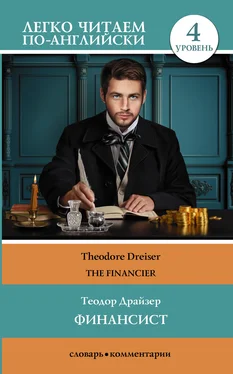



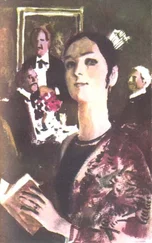

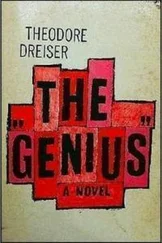

![Теодор Драйзер - Финансист. Титан. Стоик. «Трилогия желания» в одном томе [сборник litres]](/books/431071/teodor-drajzer-finansist-titan-stoik-trilogiya-thumb.webp)
